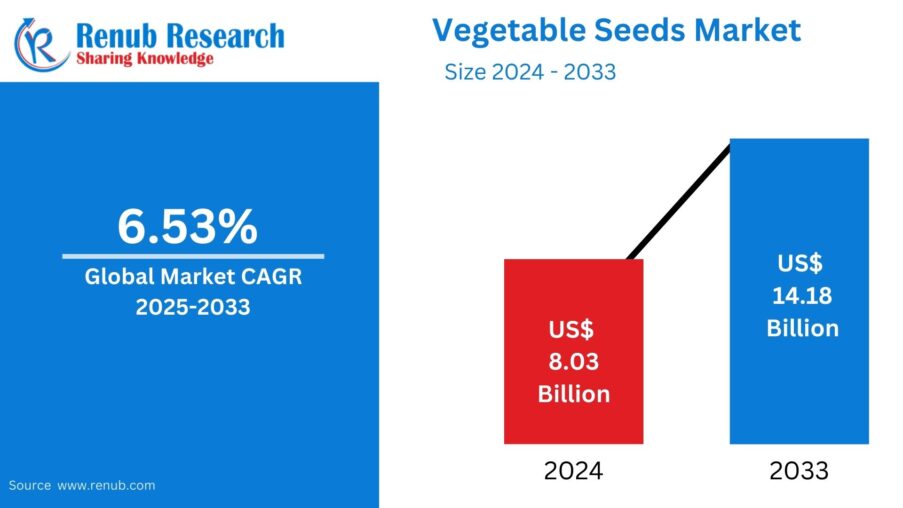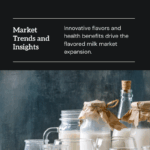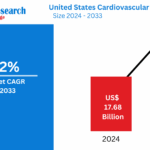Global Vegetable Seeds Market Size, Share & Forecast 2025–2033
Press Release
The global vegetable seeds market is experiencing a transformative surge, with the market size projected to increase from US$ 8.03 billion in 2024 to US$ 14.18 billion by 2033, expanding at a robust CAGR of 6.53% from 2025 to 2033. This growth is driven by increased demand for high-yielding, disease-resistant crops, the adoption of cutting-edge agricultural biotechnology, and a shift toward organic and sustainable farming practices. As food security becomes a global priority, the vegetable seeds market is positioned as a critical enabler of agricultural productivity and nutrition.
Vegetable Seeds Market Overview
Vegetable seeds are the fundamental input for cultivating a wide array of vegetables including tomatoes, cucumbers, carrots, and peppers. These seeds are available in various forms such as hybrid, open-pollinated, and genetically modified (GM), each catering to specific farming preferences and regional requirements. They play an essential role in both commercial agriculture and home gardening by influencing crop yield, nutritional value, and resistance to pests and diseases.
Market Dynamics
Drivers
- Growing Demand for High-Yielding and Disease-Resistant Crops
The need for increased agricultural productivity to meet rising food demand is boosting the adoption of hybrid seeds. These seeds offer resistance to pests, diseases, and environmental stress, thus enhancing yield and reducing losses. As urbanization expands and arable land contracts, efficient seed varieties are vital. For example, the University of California’s development of five new high-yield, disease-resistant strawberry varieties in April 2023 reflects this trend.
- Technological Advancements in Seed Production
Breakthroughs in biotechnology such as CRISPR gene editing and genetic modification have redefined seed performance. Enhancements in seed coating and treatment improve germination rates and longevity. In September 2024, India’s release of 109 new seed varieties via the ICAR exemplified how governments are pushing innovation to counter climate change and food insecurity.
- Rising Demand for Organic and Non-GMO Farming
Consumers are increasingly favoring organic produce, leading to greater demand for non-GMO and open-pollinated seeds. This shift is supported by government subsidies and NGO initiatives promoting eco-friendly farming. In 2022, organic farming was practiced in 188 countries across over 96 million hectares—up more than 20 million hectares from the previous year.
Challenges
- High Cost of Hybrid and GM Seeds
Despite their benefits, hybrid and GM seeds are cost-prohibitive for many smallholder and subsistence farmers. These seeds often require additional inputs such as fertilizers and irrigation systems, further elevating production costs and limiting widespread adoption in developing economies.
- Regulatory and Environmental Barriers
Genetically modified seed varieties face strict regulatory scrutiny and societal resistance due to concerns over biodiversity, environmental impacts, and food safety. Regulatory approval processes are often lengthy and costly, slowing innovation and market penetration.
Country-Level Market Insights
Canada
Canada’s vegetable seeds market is expanding due to growing consumer demand for sustainable, fresh, and locally produced food. Hybrid and disease-resistant seeds are widely used for their adaptability to the country’s diverse climates. Supportive government policies, including greenhouse farming incentives, foster market growth. In August 2024, Syngenta expanded its NK Seeds corn portfolio, demonstrating ongoing R&D investment.
Denmark
Denmark emphasizes organic and environmentally conscious farming practices, driving demand for open-pollinated and organic seeds. The government’s “Særpuljer” initiative in 2024 promotes sustainability in biosolutions and food production. Danish farmers prefer seeds that support eco-friendly cultivation and are compliant with stringent GMO regulations.
China
China dominates the global vegetable seed market due to its vast population and extensive agricultural output. Hybrid seeds are crucial for maximizing yield and minimizing losses. Advances in biotechnology and supportive government policies bolster seed innovation. In 2022, vegetable cultivation spanned 22.7 million hectares, an increase of 3.9% since 2017.
Brazil
Favorable climatic conditions, vast arable land, and government support for agricultural technology are propelling Brazil’s vegetable seeds market. The use of hybrid seeds is growing, fueled by health-conscious consumers and urbanization. The government’s 2024/2025 Crop Plan allocated R$475.5 billion (US$88.2 billion) to support advanced farming practices.
Market Segmentation
By Type
- Open Pollinated Varieties
- Hybrid
By Crop Type
- Solanaceae (e.g., tomatoes, peppers)
- Root & Bulb (e.g., carrots, onions)
- Cucurbit (e.g., cucumbers, melons)
- Brassica (e.g., cabbage, broccoli)
- Leafy (e.g., lettuce, spinach)
- Others
By Cultivation Method
- Protected Cultivation
- Open Field Cultivation
Regional Analysis
North America
- United States
- Canada
Europe
- France
- Germany
- Italy
- Spain
- United Kingdom
- Belgium
- Netherlands
- Turkey
Asia-Pacific
- China
- Japan
- India
- South Korea
- Thailand
- Malaysia
- Indonesia
- Australia
- New Zealand
Latin America
- Brazil
- Mexico
- Argentina
Middle East & Africa
- Saudi Arabia
- UAE
- South Africa
New Publish Report:
- Global Lipid Nanoparticle Market Share Analysis and Size – Growth Trends and Forecast Report 2025-2033
- Global Intraoperative Imaging Market Size and Growth Trends and Forecast Report 2025-2033
- Global Image-guided Therapy Systems Market Share Analysis and Size – Growth Trends and Forecast Report 2025-2033
- Global Handheld X-rays Market Size and Share Analysis – Growth Trends and Forecast Report 2025-2033
Key Players: Company Profiles (3 Viewpoints)
- BASF A.G. – Overview, Recent Developments, Revenue Analysis
- Syngenta AG – Overview, Recent Developments, Revenue Analysis
- Groupe Limagrain – Overview, Recent Developments, Revenue Analysis
- Bayer AG – Overview, Recent Developments, Revenue Analysis
- Sakata Seeds Corporation – Overview, Recent Developments, Revenue Analysis
- UPL Ltd. – Overview, Recent Developments, Revenue Analysis
- Gansu Dunhuang Seeds Co., Ltd. – Overview, Recent Developments, Revenue Analysis
- JK Agri Genetics Ltd. – Overview, Recent Developments, Revenue Analysis
Conclusion The global vegetable seeds market is undergoing rapid transformation driven by technological innovation, changing dietary preferences, and policy-level support for sustainable agriculture. As populations grow and climate concerns intensify, the demand for resilient, high-quality seeds will continue to rise, positioning the market as a cornerstone of the future food system.
About the Company:
Renub Research is a Market Research and Consulting Company. We have more than 15 years of experience especially in international Business-to-Business Researches, Surveys and Consulting. We provide a wide range of business research solutions that helps companies in making better business decisions. We partner with clients in all sectors and regions to identify their highest-value opportunities, address their most critical challenges, and transform their businesses. Our wide clientele comprises major players in Healthcare, Travel and Tourism, Food Beverages, Power Energy, Information Technology, Telecom Internet, Chemical, Logistics Automotive, Consumer Goods Retail, Building, and Construction, Agriculture. Our core team is comprised of experienced people holding graduate, postgraduate, and Ph.D. degrees in Finance, Marketing, Human Resource, Bio-Technology, Medicine, Information Technology, Environmental Science, and many more.
Media Contact:
Company Name: Renub Research
Contact Person: Rajat Gupta, Marketing Manager
Phone No: +91-120-421-9822 (IND) | +1-478-202-3244 (USA)
Email: mailto:[email protected]




